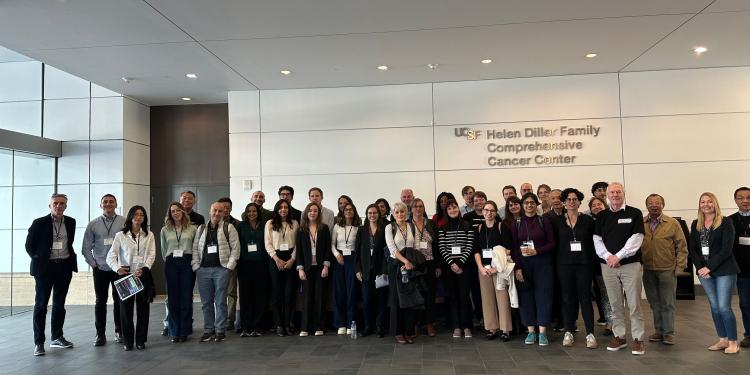Early clues from normal tissue: how sex and smoking influence cancer promotion in the bladder
New findings from team PROMINENT.

In work led by Allan Balmain and Yun Rose Li, the PROMINENT team has shown that mutation-ridden skin cells can persist for almost a lifetime before becoming malignant. The team demonstrated the importance of promotional, non-mutagenic stimuli as the rate-limiting step in tumour development. The team published its findings in Cancer Discovery.
Team PROMINENT is tackling the normal phenotypes challenge by addressing the interplay between genetic predisposition and environmental influences in cancer development. The team is investigating the promoter hypothesis about the very early stages of cancer development, in which cells exposed to mutagenic carcinogens accumulate cancer-driving mutations but remain dormant. The team’s latest work further dissects the intricate molecular mechanisms that govern latency and malignant transformation.
Led by Allan Balmain (University of California, San Francisco) and Yun Rose Li (City of Hope Comprehensive Cancer Center), the work demonstrates that mouse skin cells holding thousands of mutations can persist for almost a lifetime. The team went on to show that mutagen-induced initiation must be followed by non-mutagenic promotion, which may change tissue landscapes to mediate clonal selection for malignant phenotypes.
Through meticulous whole-genome sequencing in mouse models, the work provides compelling evidence that initiated cells, even those ridden with thousands of mutations, can persist in a latent state within normal tissues for extended periods. These highly mutated cells do not spontaneously transform into tumours. Instead, their malignant potential is unleashed only upon exposure to specific 'promotional' factors, such as 12-O-tetradecanoylphorbol-13-acetate (TPA, a classical chemical promoter), chronic tissue damage (wounding) and obesity. Cells carrying cancer driver mutations are commonly found in normal human tissues, making the findings relevant to human health.
This paper further demonstrates that while mutations are essential for initiation, 'promotion' is the critical rate-limiting step in the development of cancer, challenging long-held assumptions. Rather than solely focusing on preventing initial genetic damage, the findings suggest a potent avenue for intervention lies in mitigating the environmental and lifestyle factors that act as tumour promoters.
The findings were published in Cancer Discovery, appearing on the cover of the June issue. The paper was also accompanied by a commentary from Emilia Lim (University of British Columbia) and James DeGregori (University of Colorado) discussing the impact of the work entitled, ‘The Nature and Nurture of Carcinogenesis’.
______________________
Read the paper:
Long-Term Latency of Highly Mutated Cells in Normal Mouse Skin Is Reversed by Exposure to Tumor Promoters and Chronic Tissue Damage
Read the commentary:
The Nature and Nurture of Carcinogenesis
Through Cancer Grand Challenges team PROMINENT is funded by Cancer Research UK, the National Cancer Institute and the Scientific Foundation of the Spanish Association Against Cancer.
New findings from team PROMINENT.
Q&A with patient advocates and future leaders.